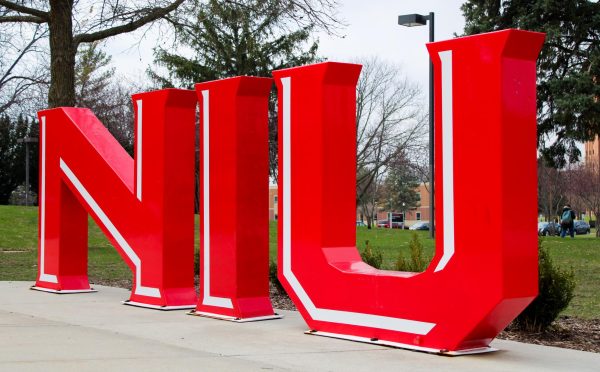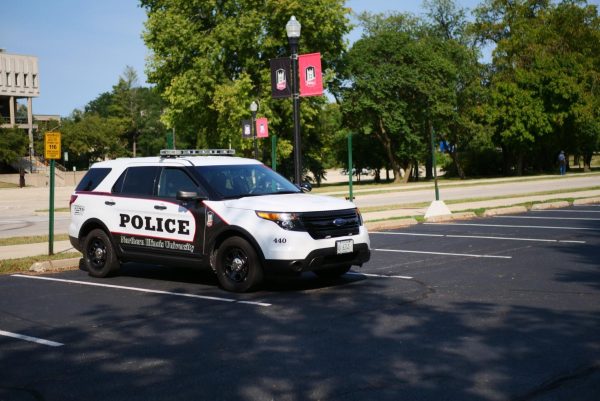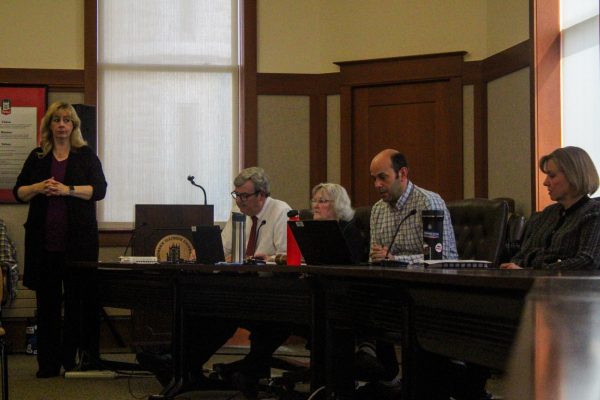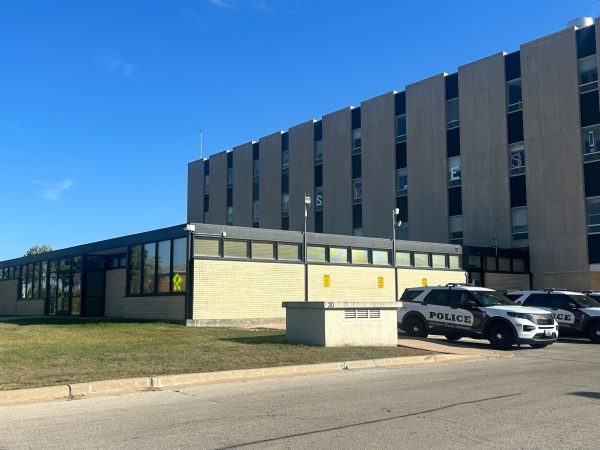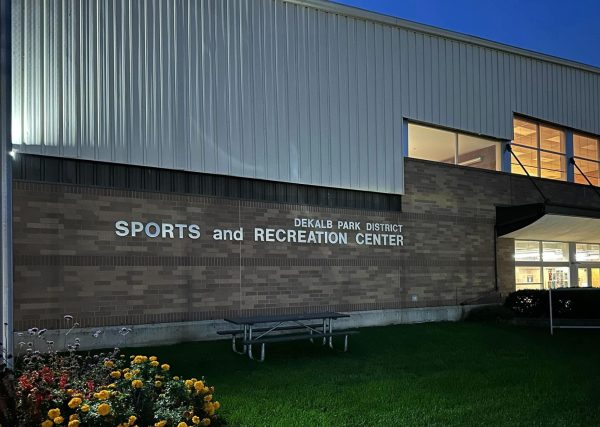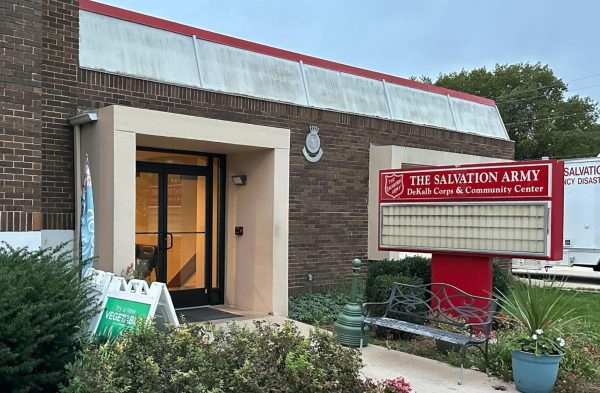Explaining Freeman’s long-term goals for university
Freeman hopes to increase diversity within faculty and staff and more.
DeKALB – NIU President Lisa Freeman announced her goals for the 2021-2022 academic year in a Board of Trustees meeting last November. The goals presented to the Board of Trustees include annual and multi-year objectives in six different themes.
For this academic year, Freeman’s goals include empowerment and shared responsibility; student recruitment, student success and student experience; academic excellence and curriculum innovation; diversity, equity and inclusion; research, artistry and engagement; and resource development and fiscal responsibility.
“Our goals reflect a commitment to equity and diversity that is deep, strategic and sustainable,” Freeman said in her State of the University address last November. “Through shared commitment and accountability, achieving these goals will enhance the success of all of our students and faculty, foster employee satisfaction and sense of belonging and, importantly, position the university for long-term sustainability.”
The document detailing Freeman’s goals also outlines sub-goals, as well as possible indicators of progress for each goal.
Empowerment and Shared Responsibility
Addressing her goals to make NIU a more inclusive, accountable workplace, Freeman has created several task forces and teams comprised of board members and other administration officials to bolster shared leadership initiatives and to reach goals more efficiently.
“Peer leadership is a key element of this year’s university goals because we know from experience that NIU gets great results when our faculty, staff and students are empowered to work in teams, think creatively, express their opinions and develop solutions,” Freeman said in a special meeting of the Board of Trustees last November.
Student Recruitment, Student Success and Student Experience
Student enrollment and retention can be an important measure of success for a university, as it shows that the university is able to carry out its mission and purpose to support students through their education.
With an original goal of 30,000 students enrolled in 2020, NIU has since changed that goal. In the new Strategic Enrollment Plan, NIU is aiming for nearly 18,000 students enrolled by the Fall 2023 semester.
“We developed and introduced new programs and strategies to make an NIU degree even more accessible, equitable and affordable,” Freeman said in her State of the University address.
Initiatives like the Huskie Pledge and Rockford Promise, Freeman has created multiple sub-goals to track and enhance student retention.The university plans on focusing on creating more equitable retention and graduation rates among subsets of students, including Latinx and Black students.
Reducing equity gaps in graduation and retention rates of Latinx and Black students is expected to drop to 10% or less by 2023, according to the University Goals proposal. These objectives will be formally introduced in an updated Strategic Enrollment Management Plan this month.
Academic Excellence and Curriculum Innovation
To further encourage and support academic excellence, Freeman’s goals highlight the importance of transdisciplinary studies. This goal also supports collaboration among program leaders and students.
Specifically, NIU aims to support transdisciplinary studies in the realms of STEM, social justice and environmental justice.
One of the initiatives formed to reach this goal is to actively identify and remove barriers that inhibit transdisciplinary study for faculty and students. This could include fellowships, visiting assistant professorships or possibly an enhanced operating budget.
For students, transdisciplinary study opportunities could include capstone projects, research projects or cross-disciplinary credentials.
Diversity, Equity and Inclusion
Freeman’s goals also support continued diversity and inclusion, while aiming for more equity in all departments. This goal encompasses the need to continue diversification and inclusion efforts within the student body at NIU.
While NIU already has plans in place to recruit and hire more diverse faculty and staff members, Freeman plans to draft a Shared Equity Leadership model, which makes equity and inclusion a shared goal among all leadership within the university.
Indicators of Progress/Success (Is Freeman succeeding?)
Just over two months from the initial approval of her goals for the 2022 academic year, Freeman is already making progress.
2020 saw overall growth in student enrollment, according to NIU’s website. This growth spanned further than just undergraduate enrollment. NIU’s law program also saw an increase of 12% and enrollment for all other graduate and professional programs leveled out at 4,185 students. 2021 saw the largest percentage increase in the freshman class for over 20 years.
NIU has also revised its strategic enrollment plan in order to better serve the needs of students during the COVID-19 pandemic. This includes creating plans that will fit the unique and diverse needs of students of all backgrounds, and specifically creating more equitable access to necessary technology, support networks and financial aid.
NIU has already received funding to begin establishing a Truth Racial Heal and Transformation campus center, according to NIU Today. The establishment of the center would go towards Freeman’s goals of achieving a more diverse campus and community.
While Freeman is already seeing some progress being made on her goals, many of them are multi-year objectives, and likely won’t see significant measurable progress until more time has passed.




